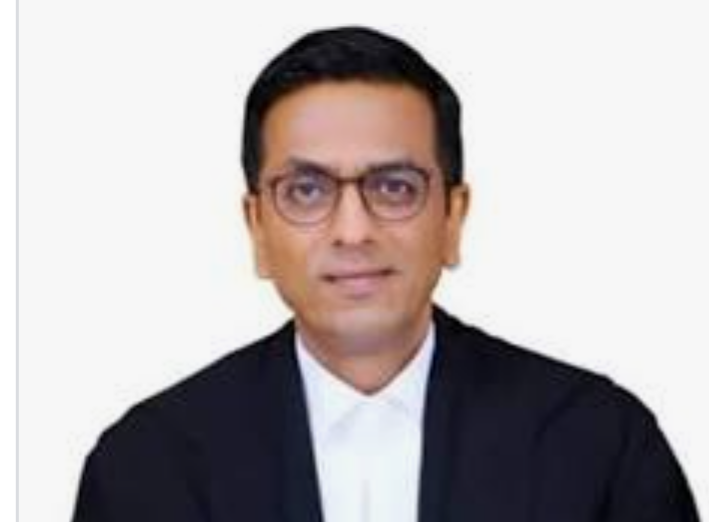Dhananjaya Yeshwant Chandrachud is the 50th Chief Justice of India whose tenure is expected to be of 2 years.
He is a former ex-officio executive chairman of National Legal Services Authority whilst being J1 of the Supreme Court of India.
Born: 11 November 1959 (age 62 years), Mumbai
Education: Harvard University, St. Columba’s School, St Stephen’s College, University of Delhi, more
Parents: Y. V. Chandrachud, Prabha Chandrachud
Office: Chief Justice of India since 2022
Nationality: Indian
Children: 2
Nominated by President Droupadi Murmu.
New Delhi. Justice Dhananjaya Yashwant Chandrachud, who was part of the Supreme Court benches that delivered several important verdicts including the Ayodhya land dispute case, was sworn in as the 50th Chief Justice of India on Wednesday.
President Droupadi Murmu administered him the oath at a brief ceremony held at the Rashtrapati Bhavan here. He took the oath in English and in the name of ‘God.’
Justice Chandrachud took over as the CJI from Justice Uday Umesh Lalit, who demitted office on Tuesday, and will head India’s judiciary until November 10, 2024, a day before he completes 65 years.
Those present at the ceremony included Vice President and Rajya Sabha chairperson Jagdeep Dhankhar, Lok Sabha Speaker Om Birla, and Union ministers Rajnath Singh, Amit Shah and Kiren Rijiju.
Outgoing CJI Lalit was also present. On October 11, he had recommended to the Centre Justice Chandrachud’s name as his successor.
On October 17, Justice Chandrachud was named the 50th CJI. He was elevated as a judge of the Supreme Court on May 13, 2016. He is the son of the longest serving CJI Y.V.
Chandrachud, who headed the Judiciary from February 22, 1978, to July 11, 1985.
Justice Chandrachud, who calls dissent the “safety valve of democracy”, was part of several Constitution benches and landmark verdicts of the top court, including on matters relating to the Ayodhya land dispute and right to privacy.
He was also part of the benches that delivered path-breaking judgements on decriminalising same-sex relations after it partially struck down Section 377 of the Indian Penal Code, validity of the Aadhaar scheme and Sabarimala issue. Recently, a bench headed by him expanded the scope of the Medical Termination of Pregnancy (MTP) Act and the corresponding rules to include unmarried women for abortion between 20-24 weeks of pregnancy.
A bench headed by him had also passed several directions to assuage people’s miseries during the COVID-19 crisis, terming the brutal second wave of the pandemic last year a “national crisis”.
Recently, Justice Chandrachud, as the senior-most judge after then CJI Lalit, was among the two judges of the apex court Collegium who had objected to the method of “circulation” adopted for eliciting views of its members on the appointment of judges to the top court.
On September 30, a bench headed by him sat till 9:10 pm, around five hours beyond the regular working hours of the apex court, to hear 75 cases to clear the board before the onset of the Dussehra vacation.
In a landmark verdict delivered in February 2020, a bench headed by him had directed that women officers in the Army be granted permanent commission and command postings, rejecting the Centre’s stand of their physiological limitations as being based on “sex stereotypes” and “gender discrimination against women”.
Later, the bench had also paved the way for granting permanent commission to women officers in Indian Navy, saying a level-playing field ensures that women have the opportunity to overcome “histories of discrimination”.
Justice Chandrachud, who has played a pivotal role in digitisation of the judiciary, has been part of several Constitution benches.

